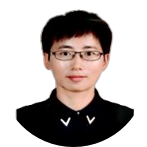Session 6: Advanced Control and Optimal Dispatch of Power Electronics-Dominated Power System
“电力电子化电力系统的先进控制与最优调度”
The transition toward a low-carbon power system has witnessed a rapid proliferation of renewable power plants and charging infrastructures, introducing massive power electronics devices and accelerating the evolution of power electronics-dominated power systems (PEDPS). However, the inherent low inertia and wide-band oscillation characteristics of power electronics pose significant challenges to power system stability, manifesting as critical control issues like frequency instability and transient overvoltage. Furthermore, in PEDPS, the generation-demand imbalance is exacerbated by the stochastic nature of renewable energy sources, necessitating enhanced focus on the optimal dispatch of flexible resources, particularly power electronics-based solutions. This paradigm shift demands advanced control strategies and optimized dispatch mechanisms for PEDPS.
在向低碳电力系统转型的过程中,新能源发电装备和充电设施的快速普及带来了大量电力电子设备,加速了电力电子化电力系统的形成。然而,电力电子设备固有的低惯性和宽频带振荡特性给电力系统稳定性带来了严峻挑战,主要表现为频率失稳和暂态过电压等关键控制问题。此外,在电力电子化电力系统中,新能源的随机性加剧了发电与需求之间的不平衡,这就要求我们更加重视柔性资源(尤其是基于电力电子的解决方案)的优化调度。这一范式转变要求我们为电力电子化电力系统开发更先进的控制方法和最优调度策略。
Topics (Including but not limited to)
- 1. Modeling, simulation, and digital-twin technologies of power electronics in power system, including inverter-DG, energy storage system, and electric vehicle charging piles.
电力系统中电力电子设备的建模、仿真与数字孪生技术,涵盖分布式发电中的逆变器、储能系统以及电动汽车充电设施。 - 2. Advanced control methods for power electronics in power system, such as sliding mode control, model predictive control, and fuzzy control.
电力系统中电力电子设备的先进控制策略,如滑模控制、模型预测控制和模糊控制等。 - 3. AI-Enabled control methods and AI-Physics hybrid control methods for power system.
面向电力系统的AI赋能控制方法与AI-物理融合控制方法。 - 4. Power system planning and dispatch optimization of flexible resources, including energy storage systems, electric vehicle aggregators, and demand-side response.
灵活资源的电力系统规划与优化调度,包括储能系统、电动汽车聚合商和需求侧响应。 - 5. Design and trading mechanisms for low-carbon electricity markets, frequency regulation markets, and integrated carbon markets.
低碳电力市场、频率调节市场及碳市场的机制设计与交易策略。
Chair: Dr. Li Liu, Guangxi University, China
 Li Liu was born in Shanxi, China, in 1992. He received the B.S. degree in electrical engineering (and automation) from the Harbin Institute of Technology, Harbin, China, in 2014, and the M.Sc. and Ph.D. degree from the University of Macau, Macau, China, in 2017 and 2021, respectively.
Li Liu was born in Shanxi, China, in 1992. He received the B.S. degree in electrical engineering (and automation) from the Harbin Institute of Technology, Harbin, China, in 2014, and the M.Sc. and Ph.D. degree from the University of Macau, Macau, China, in 2017 and 2021, respectively.
He is currently working with the School of Electrical Engineering, Guangxi University, Nanning, China. His research interests include electric traction power quality compensation, modular multilevel converter, and control of multilevel converter.
Co-chair: Dr. Jianhua Gong, University of Macau, China
 Jianhua Gong was born in Tianshui, China. He obtained his B.S. degree in electrical engineering from Wuhan University, Wuhan, China, in 2019. From 2020 to 2021, he was a research assistant with the State Key Laboratory of Internet of Things for Smart City, University of Macau, where he is currently working towards the Ph.D. degree in electrical and computer engineering. His research interests include convex optimization, the application of artificial intelligence (AI) in power system, and physics-informed AI.
Jianhua Gong was born in Tianshui, China. He obtained his B.S. degree in electrical engineering from Wuhan University, Wuhan, China, in 2019. From 2020 to 2021, he was a research assistant with the State Key Laboratory of Internet of Things for Smart City, University of Macau, where he is currently working towards the Ph.D. degree in electrical and computer engineering. His research interests include convex optimization, the application of artificial intelligence (AI) in power system, and physics-informed AI.
Co-chair: Assoc. Prof. Lidan Chen, Guangzhou Maritime University, China
 Lidan Chen (Member of the IEEE) received the B.S. degree in Automation from Hangzhou Dianzi University, Hangzhou, China, in 2003 and the M.S. degree and Ph.D. degree in Power System and its Automation from South China University of Technology, Guangzhou, China, in 2009 and 2018, respectively. She served on building automation at Hangzhou Hongxin Intelligent Technology Co., Ltd during 2003 to 2006. In 2009, she joined Guangzhou City University of Technology, where she has been with the Electrical Engineering Department. From 2012 to 2014, she was a Research Assistant with the Hong Kong Polytechnic University. From 2018 to 2019, she became a visiting scholar with the Michigan Technological University. And from 2020 to 2022, she was a post-doctor fellow in the State Key Laboratory of Internet of Things for Smart City at University of Macau, Taipa, China. Following this, she was employed by her present university, Guangzhou Maritime University, which she has served as Associate Professor at School of Shipping and Maritime Studies. Her research interests span the areas of electrical, thermal, and transportation engineering. Currently, she has been focusing on Advanced distribution grid technologies, EV-transportation-energy grid interaction and Artificial intelligence for power system optimization.
Lidan Chen (Member of the IEEE) received the B.S. degree in Automation from Hangzhou Dianzi University, Hangzhou, China, in 2003 and the M.S. degree and Ph.D. degree in Power System and its Automation from South China University of Technology, Guangzhou, China, in 2009 and 2018, respectively. She served on building automation at Hangzhou Hongxin Intelligent Technology Co., Ltd during 2003 to 2006. In 2009, she joined Guangzhou City University of Technology, where she has been with the Electrical Engineering Department. From 2012 to 2014, she was a Research Assistant with the Hong Kong Polytechnic University. From 2018 to 2019, she became a visiting scholar with the Michigan Technological University. And from 2020 to 2022, she was a post-doctor fellow in the State Key Laboratory of Internet of Things for Smart City at University of Macau, Taipa, China. Following this, she was employed by her present university, Guangzhou Maritime University, which she has served as Associate Professor at School of Shipping and Maritime Studies. Her research interests span the areas of electrical, thermal, and transportation engineering. Currently, she has been focusing on Advanced distribution grid technologies, EV-transportation-energy grid interaction and Artificial intelligence for power system optimization.
Critical Dates/重要日期
| Submission of Full Paper: | July 15th, 2026 |
| 投稿截止日: | 2026年7月15日 |
| Notification Deadline | August 15th, 2026 |
| 通知书发送: | 2026年8月15日 |
| Registration Deadline: | August 30th, 2026 |
| 注册截止日: | 2026年8月30日 |
Submission Guideline / 投稿指南
Template Download: Formatting.doc (文章模板)
Submit Now: Electronic Submission System (投稿链接)
© 2017-2026 ICSGSC | All rights reserved.
2026 the 10th International Conference on Smart Grid and Smart Cities (ICSGSC)